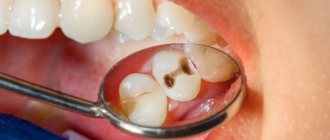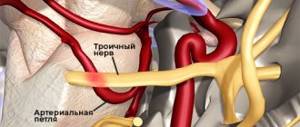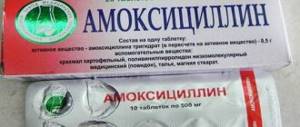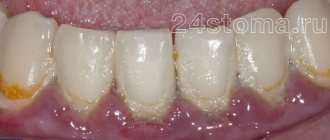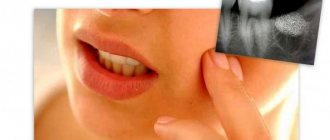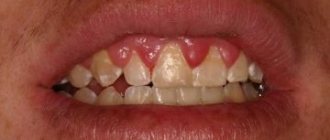Every person has had an inflamed gum at least once in their life. This usually occurs due to brushing too aggressively, using a hard toothbrush, putting too much pressure on the soft tissue of the floss, or eating very hard foods. If the causative factor is eliminated, the gums quickly heal and the inflammation goes away. But there are situations when the gums near the crown of the tooth become inflamed, but there were no obvious reasons provoking this condition. In this case, you need the help of a dentist.
Why does the gum under the crown hurt? Causes of pain.
The dentist will be able to determine exactly what case you have, and only he will be able to prescribe the most effective treatment.
Common problems:
- The crown is directly adjacent to the gums, so it is not surprising that irritation may occur between the gum and the foreign body. In addition, very often small particles of food get stuck in the space between the gum and the crown.
- Another reason for gum swelling and tissue inflammation may be that it is time to replace your crown - remember that they do not last forever and have a certain service life.
- Also, if the gums under the crown hurt, the tooth may be to blame. In any case, inflammation of the gums under the crown indicates a problem that only a dentist can fix.
- Crown injury. To ensure that the artificial structure is securely fixed and does not put pressure on the gingival margin, the orthopedist creates a small “step”. But sometimes this fails. In such cases, the crown begins to put pressure on the soft tissue, which disrupts the blood circulation process.
- In addition, if the edges of the crown overhang, they gradually rub the gums, causing microtrauma and compromising the integrity of the mucous membrane. Because of this, the soft tissues begin to become inflamed.
- Poor preparation for crown installation
- The most common cause of complications is poor preparation for surgery. It includes poor quality work and doctor errors. The most common ones include:
- Damage to the gums during grinding of dental tissues to install a crown. A diamond drill can touch soft tissues, leaving small damage on them, which in the future can become foci of inflammation.
- Poor quality of root canal filling.
- Perforation of the canal during fixation of the structure or during processing of the pin, which can also lead to gum inflammation.
- In rare cases, it happens that the gums under the crown are swollen due to a piece of instrument getting into the root canal. Of course, such situations, indicating the negligence of doctors, are rare, but this cause of inflammation of the gums near the crown should not be excluded.
Diagnostic methods
If your gums hurt after installing a crown, you first need to evaluate the condition of the affected area. The following methods are used for this:
- Dental examination. The doctor examines the oral cavity, identifying the presence of swelling near the crowns, bleeding, displacement of the crown, tumors, ulcers, and fistulas. The quality of turning of the prosthesis at the point of its connection with the gum is assessed. Swelling can be detected by pressing the edge of the instrument onto the gum. With pathology, a mark is formed that does not disappear for some time.
- X-ray. The finished image shows the area affected by the infection and the presence of foreign particles in the tooth cavity. You can also determine the quality of the filling, see caries in hard-to-reach areas of the incisors, detect damage to hard tissues, an abscess or a cyst that is invisible during external examination.
- If it is necessary to clarify the diagnosis, a computed tomography scan is prescribed.
Signs of inflammation
You need to pay special attention to the following symptoms:
- Pain. Most often, its cause is inflammation of the soft tissue under the crown or irritation of the root canals.
- Edema. This is a signal that inflammation has begun.
- A fistula is a channel from which pus comes out; it may appear some time after swelling.
It is worth remembering that after prosthetics, the first two to three days may be uncomfortable. In this case, you do not need to take any additional measures; if pain interferes with the usual course of business, take pain medications.
What complications can there be?
In the absence of timely treatment, the disease can lead to complications:
- An abscess is a purulent inflammation of tissue (if there was no pus during inflammation before).
- Phlegmon is an acute purulent inflammation of the subcutaneous tissue and connective tissue.
- Osteomyelitis is a purulent-necrotic process that develops in the bone and surrounding soft tissues.
- Periodontitis is inflammation of the periodontium, i.e. all tissues adjacent to the tooth.
In particularly severe cases, blood poisoning may occur (for example, if an abscess breaks).
Abscess is one of the possible complications
How to relieve pain
However, it is possible to relieve the painful symptoms of swollen gums under the crown using folk remedies:
- Mix a tablespoon of chopped thyme, chamomile and yarrow. Pour 200 ml of boiling water and let it brew for half an hour. Wait for the mixture to cool to room temperature and use as a rinse three times a day.
- The oak bark is simmered over low heat under a closed lid for 20-30 minutes. An infusion of sage leaves is added to the resulting decoction. A warm decoction will have a beneficial antiseptic and anti-inflammatory effect.
Of course, if the gum under the crown is inflamed, these methods can only relieve the pain momentarily, but they will not eliminate the cause of the disease, so you will still have to see a doctor.
What will the dentist do if the gums become inflamed after installing a crown?
First of all, the doctor will order an X-ray to determine the cause of inflammation of the gums under the crown. Treatment by the dentist will also be selected based on this information.
Most often in these cases it is necessary to remove the crown. Additionally, patients are prescribed anti-inflammatory treatment and antibiotics. It is possible to re-prosthetize a tooth after the gums have become inflamed only when the anti-inflammatory treatment has ended. And only then will a new crown be installed.
It is important to understand that folk remedies will not be effective in this case and will not replace seeing a doctor. If you realize that discomfort continues for more than three days, be sure to consult a doctor. Inflammation is a serious process that affects the body as a whole, so it is important to recognize the cause as early as possible and determine effective treatments for inflammation.
Main symptoms
Many patients ignore the initial signs of the disease, not knowing what to do if the gums become inflamed under the crown, and considering the discomfort to be a temporary phenomenon. The following alarming signs may indicate the development of a pathological process:
- Pain in the root canal area or under the crown. If the nerve has not been removed, then the tooth itself may hurt.
- Swelling of the gums.
- Smell from the mouth.
- Periostitis or flux is an inflammation accompanied by swelling and pain.
- A fistula is a hole in a swollen gum through which pus leaks. Ingestion of purulent masses threatens the spread of infection throughout the body.
- Cyst - as the disease progresses, a cavity filled with pus and covered with a fibrous membrane forms in the upper part of the root.
In the absence of effective treatment, the infection spreads to healthy teeth, which may begin to decay and fall out. Damage to the periosteum gradually leads to jaw deformation.
Care
To avoid problems with structures, you should properly care for them. For teeth with crowns, you can use an irrigator and specialized solutions for it, for example, ASEPTA with extracts of medicinal herbs. This will ensure proper cleaning in hard-to-reach places and will be a good prevention of problems with crowns.
In addition, the specialized ASEPTA ACTIVE paste, made on the basis of natural herbs and special enzymes, will help you maintain a healthy state. It eliminates pathogenic bacteria, relieves gum inflammation and prevents bleeding, providing comprehensive protection to tooth enamel.
Daily use of ASEPTA mouth rinse will also help to avoid inflammation; it combines analgesic, anti-inflammatory and antimicrobial effects. It increases the effectiveness of periodontal treatment and prevents the development of many diseases.
Diseases of supporting teeth
Prosthetic bridge construction involves grinding down the supporting teeth, and over time they can be susceptible to caries attacks, since they are located under the prosthesis. A person does not experience pain immediately, since the tooth does not have nerve endings - they are removed during prosthetics. Bacteria and other organisms in the caries cavity begin to penetrate to the root of the tooth, due to this an inflammatory process appears in the periodontal tissues.
The patient may experience severe pain with a pulsating character, which becomes stronger if you put pressure on the gums. In some cases, the temperature increases and flux appears. Treatment is possible only after removal of the prosthesis. The tooth that has been attacked by bacteria is removed by the dentist, after which treatment is carried out with antibacterial drugs and anti-inflammatory drugs.
To prevent inflammatory processes from starting under the denture, you need to follow the rules of care. But if this is not enough, then treatment will be required, which is as follows:
- If swelling and pain occur, you should use mouthwashes that have an antiseptic effect and also relieve symptoms. They are sold in pharmacies in the form of an infusion or herbal solution.
- You can use dental ointments or balms to lubricate inflamed gums.
- If the pain is very severe, you cannot do without painkillers.
Often, with the correct selection of the prosthesis and material, symptoms do not appear, and even if they do occur, the described remedies will be sufficient. But if the signs remain and their intensity increases, dentists may prescribe additional treatment, which includes:
- Adjustment of the prosthesis, after which the artificial tooth will fit normally to other parts of the oral cavity.
- Brushing teeth from tartar or plaque can be used, in this case we are talking about dental cleansing methods.
- In rare cases, antibiotics may be used.
Clinical researches
ASEPTA® mouth rinses are designed to protect gums from inflammation and improve oral hygiene. The main indications for their use are:
- acute and chronic gingivitis;
- acute and chronic periodontitis;
- stomatitis;
- post-extraction alveolitis;
- toothache of infectious origin.
Clinical trials conducted in laboratories have shown that after 3 weeks of using ASEPTA® rinse, gum bleeding is reduced by 28.3%, inflammation is reduced by 32.3% and the hygienic condition of the oral cavity is improved by 33.5%*.
Sources:
- Clinical and laboratory assessment of the influence of domestic therapeutic and prophylactic toothpaste based on plant extracts on the condition of the oral cavity in patients with simple marginal gingivitis. Doctor of Medical Sciences, Professor Elovikova T.M.1, Candidate of Chemical Sciences, Associate Professor Ermishina E.Yu. 2, Doctor of Technical Sciences Associate Professor Belokonova N.A. 2 Department of Therapeutic Dentistry USMU1, Department of General Chemistry USMU2
- Clinical experience in using the Asepta series of products Fuchs Elena Ivanovna Assistant of the Department of Therapeutic and Pediatric Dentistry State Budgetary Educational Institution of Higher Professional Education Ryazan State Medical University named after Academician I.P. Pavlova of the Ministry of Health and Social Development of the Russian Federation (GBOU VPO RyazSMU Ministry of Health and Social Development of Russia)
- Report on clinical trials to determine/confirm the preventive properties of commercially produced personal oral hygiene products: mouth rinse "ASEPTA PARODONTAL" - Solution for irrigator." Doctor of Medical Sciences Professor, Honored Doctor of the Russian Federation, Head. Department of Preventive Dentistry S.B. Ulitovsky, doctor-researcher A.A. Leontiev First St. Petersburg State Medical University named after academician I.P. Pavlova, Department of Preventive Dentistry.

